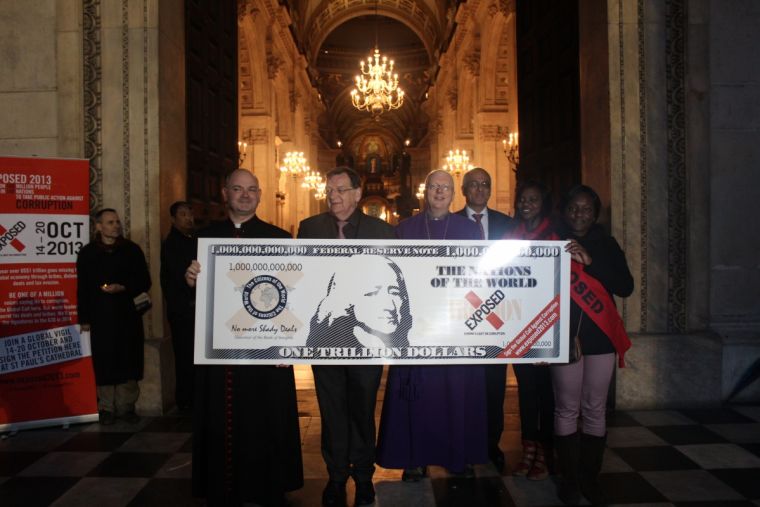'Shocking' levels of corruption worldwide

An international coalition of Christian organisations working to tackle corruption has said world leaders need to act swiftly to end the shocking levels of corrupt practices across the globe.
The message from the Exposed campaign group comes in the lead up to International Anti-Corruption Day on 9 December.
Exposed says that corruption not only blights global and national economies, but has far reaching effects, and it is often local communities and the lives of the poorest individuals that suffer the worst consequences.
Transparency International's Corruption Perceptions Index 2013 indicates that the abuse of power and bribery is rife, and continues to "ravage societies around the world".
According to figures, on a scale from 0 (highly corrupt) to 100 (very clean), more than two-thirds of 177 countries in the 2013 index score below 50.
International Co-ordinator of Exposed, Joel Edwards, said: "It is shocking that the world still tolerates corruption when we know the devastation that it causes – to economics, communities and to individuals."
The Exposed campaign encourages people around the world to consider practical and positive ways to resist corruption in their communities, including their churches, and to promote increased integrity and ethics in business.
Mr Edwards has called on world leaders to be "more proactive and strident" in the development of political and business systems designed to put an end to corruptive practices.
"This is not just to ensure the health of the global economy, but more importantly for the sake of the world's poorest people who are the most affected by corruption," he asserts.
Exposed held a Week of Action in October of this year, during which individuals in over 150 nations participated in events and social media campaigns to highlight the growing problem of corruption in the world.
A thousand vigils were held to "shine a light on corruption", while more than three million people heard the message through various media channels and got involved on social media.
Almost 40,000 have already signed the group's 'Global Call to End Corruption' petition, which demands more open tax regimes and greater transparency in payments to work against bribery and tax avoidance.
This petition will be presented to the meeting of the G20, the world's leading economies, in November 2014, with the hope that it will encourage leaders to combat corruption.
The recent campaign revealed the passion that many have for seeing an end to corruptive practices, and Exposed believes that this is evolving into a real demand for change.
"In particular, people are beginning to wake up to the destructive effects of tax evasion and the links with corruption and poverty," Edwards said.
"If tax evasion was stopped, the lives of 230 under 5-year olds a day in the developing world could be saved."
Mr Edwards concluded his message with a reminder that in many nations such as Nepal, Malaysia and Uganda, positive changes are already taking effect, "but if we are to see the end of corruption and the end of poverty, we need world leaders to act decisively".











